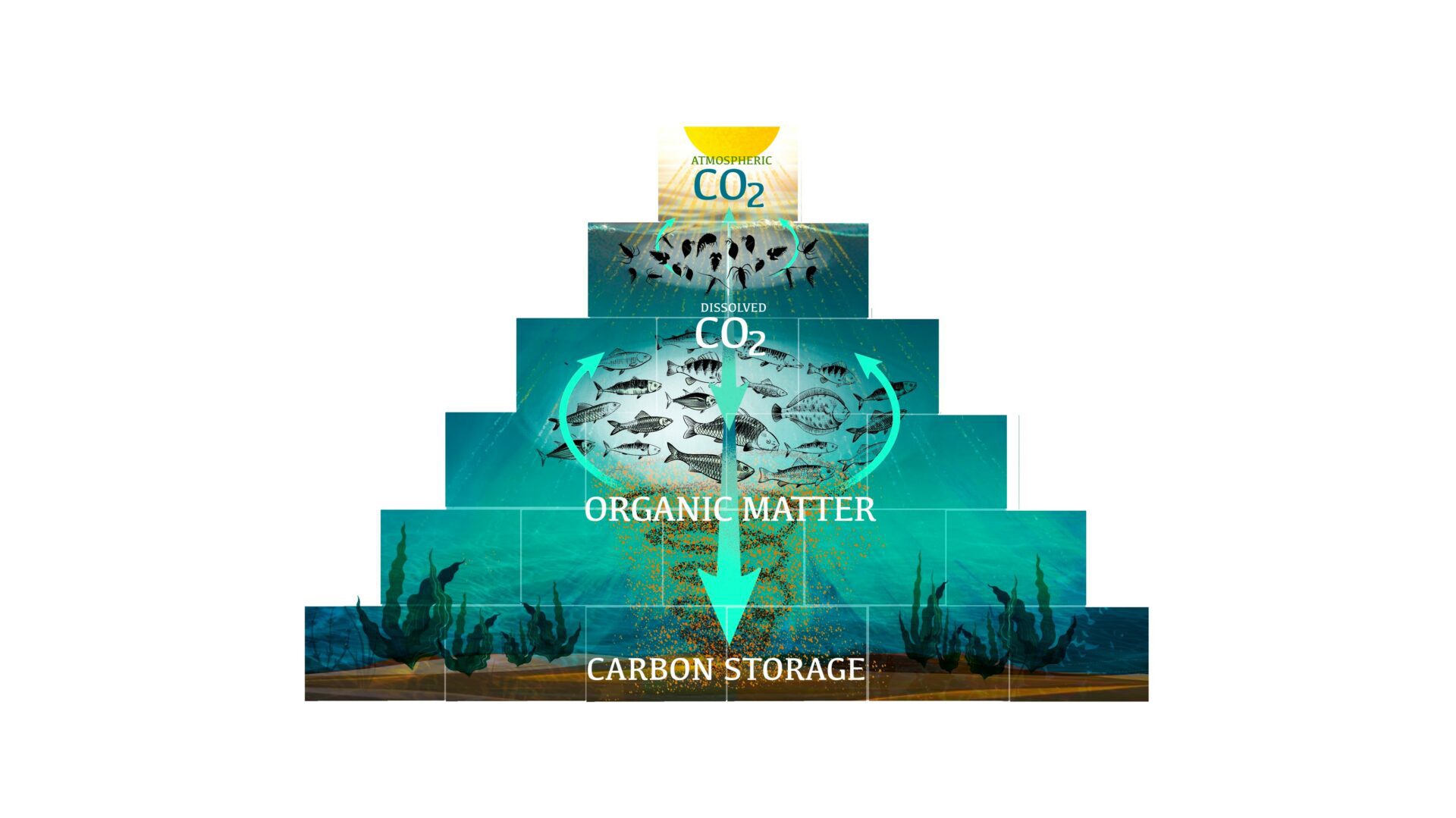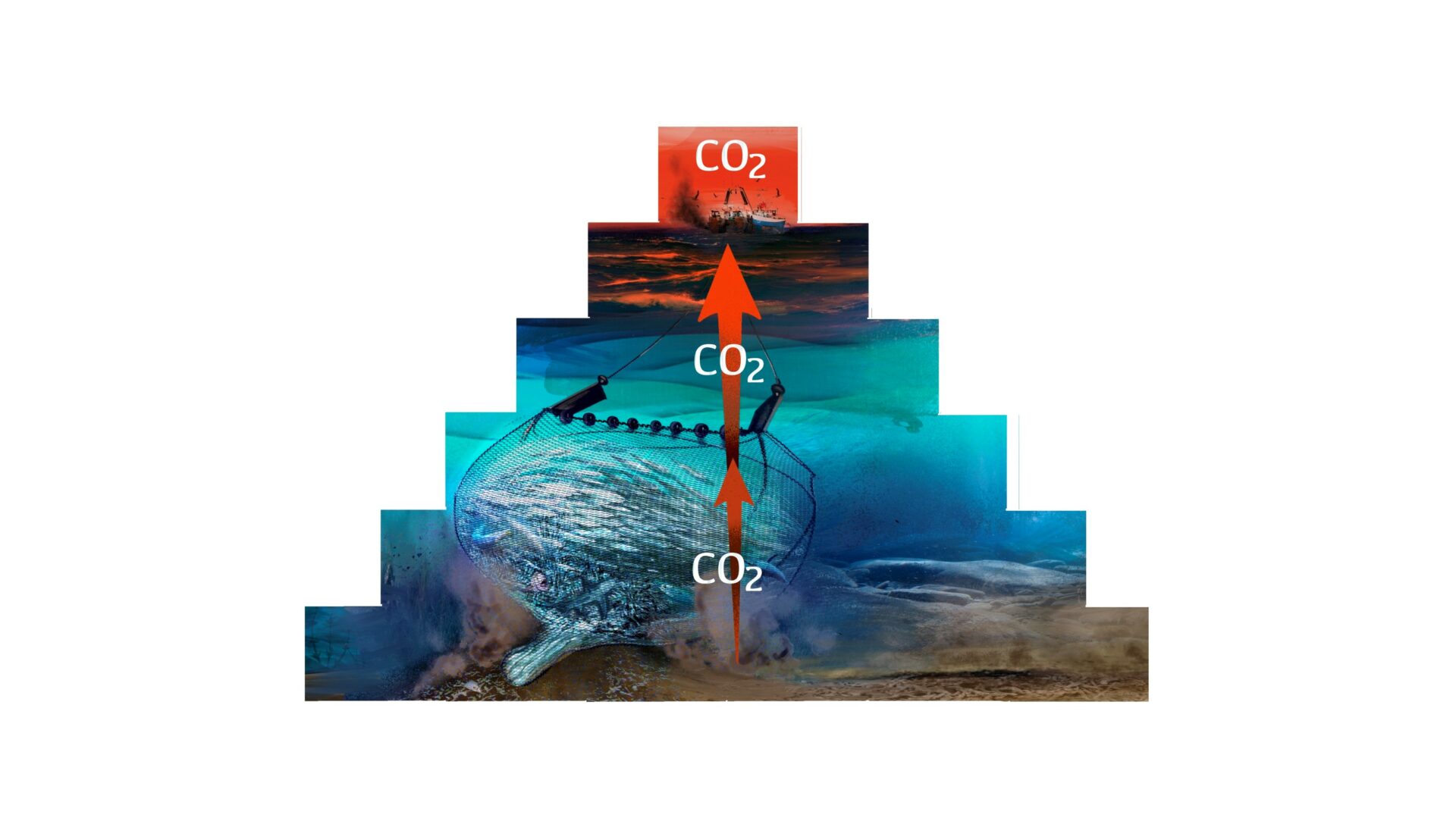Hosted by Jennifer Whitmore TD, Our Fish and BirdWatch Ireland held a parliamentary briefing on ‘Fish as Carbon Engineers – the role of fish and fisheries management in climate action’ in the AV Room at Leinster House on Thursday 11th May. Attendees heard from Angela Martin of Agder University, Dave Reid of the Marine Institute, and Rebecca Hubbard of Our Fish on the critical role of fish in the ocean’s carbon cycle and the significance of fisheries management for climate action.
The Ocean’s Carbon Pump
The Ocean is a life giver but current fisheries management practices place huge pressure on the Ocean’s life-sustaining functions. One of the many crucial roles the Ocean plays is in its ability to capture and store carbon, and fish, as carbon engineers, play a vital role in the ocean’s carbon cycle.
Fish Contribute to the Ocean Carbon Cycle in 3 Ways
- Fish bodies store carbon temporarily and fish populations act as a carbon store. Fish carcasses deliver carbon to deeper water and to sediments as they sink.
- Fish faecal pellets contain carbon and rapidly sink to deep sediments.
- Fish that migrate vertically in the water column feed on carbon-rich food in shallower water and by returning to deeper waters, deliver carbon to deep-sea food webs and sediments through faeces, respiration, and their carcasses.
Fishing impacts on fish carbon
Fishing impacts the contribution of fish to the ocean’s carbon sink. A 2021 paper estimated that fish contribute 16% to carbon sinking processes. By removing fish from the ocean, carbon storage in fish populations and the carbon sinking potential of fish faecal pellets and carcasses is reduced. One study revealed fishing reduces carbon sinking in fish faecal pellets by 30%.
Fishing also affects oceanic food webs which can cause cascades, whereby the removal of too many fish changes the dynamic of the food web (e.g. kelp forest decimation in Norway). Where fishing reduces predator populations, their prey populations increase. This causes increased pressure on second-level prey whose populations will decrease, and so on down the food chain.
Subsidies provided to the EU fishing fleet drive overfishing and ensure that ongoing climate, biodiversity and fisheries issues continue to persist. By artificially lowering operating costs, fuel subsidies incentivise destructive and uneconomic fishing. Overfishing facilitated through fuel subsidies contributes significantly to increasing emissions and biodiversity loss. Large scale fleets benefit disproportionately from these uniquely harmful subsidies, and as these more polluting and destructive fleets are supported, more fishing grounds relied upon by small-scale low-impact vessels are depleted.
Currently, where the Irish programme for the European Maritime Fisheries & Aquaculture Fund (EMFAF) mentions climate neutrality and improving energy efficiency, investment is focused solely on the replacement or modernisation of vessel engines. Clear supports and investment to lower emissions fishing, with a central focus on transitioning to low impact fishing gear and methods, is of critical and urgent importance for climate, biodiversity, and for fisheries.
Further research
While more research on the impacts of bottom trawling on carbon in sediments and ocean carbon cycling on the continental shelf is ongoing, there are clear and undeniable takeaways; fish are important carbon engineers and fishing harms the ocean’s carbon sink potential.
Action Needed
The current system of fisheries mismanagement across Europe is both burning up and breaking down the ocean’s biological carbon pump, through fuel intensive fishing practices that disturb sedimentary carbon sinks, and through the removal of excess fish carbon engineers. All Member States need to recognise that good fisheries management is good carbon management and need to implement a true whole-of-economy approach to climate action as obligated under the Paris Agreement, considering both direct and indirect emissions of fishing.
However, opportunities already exist to address this far-reaching shortcoming. Article 17 of the Common Fisheries Policy provides an opportunity to transition the EU’s fishing fleet to one which is low emissions, low environmental impact and socially just. A study investigating the economic impact of reallocating quota for Haddock in the Celtic Sea and other EU fisheries has revealed that greater employment potential can be generated by awarding fishing opportunities according to environmental and social criteria.
Incentivising and supporting the transition to climate- and nature-compatible fisheries management will increase the abundance and resilience of fish carbon engineers, protect food webs and the biological pump, and avoid habitat disturbance and destruction. Furthermore, it will support the future viability of fishing, by improving livelihoods and coastal communities’ resilience, and increasing employment opportunities, all while maintaining economic output and freeing up funds for other social and environmental needs.
Read the Fish-Carbon briefing here.
View presentations from Angela Martin, Agder University, and from Rebecca Hubbard, Our Fish.



